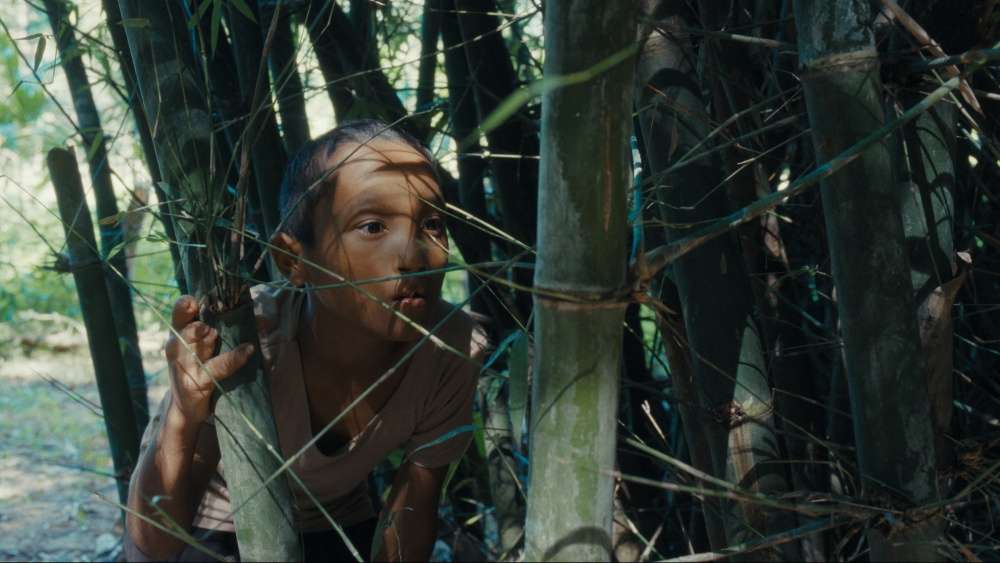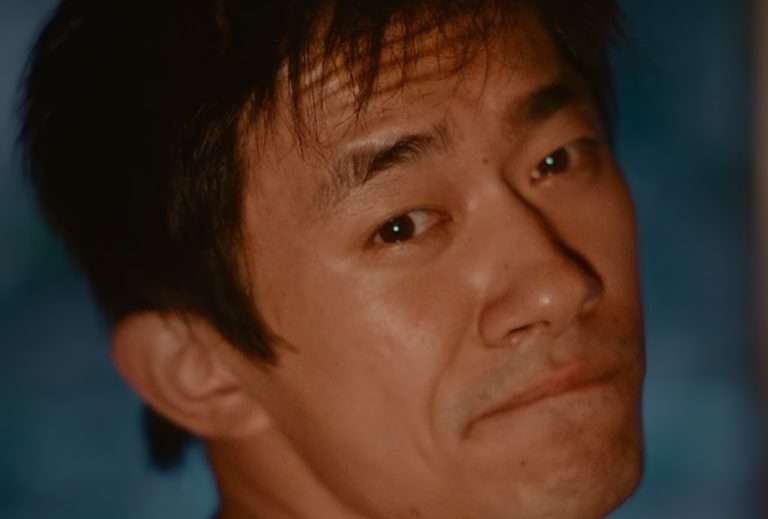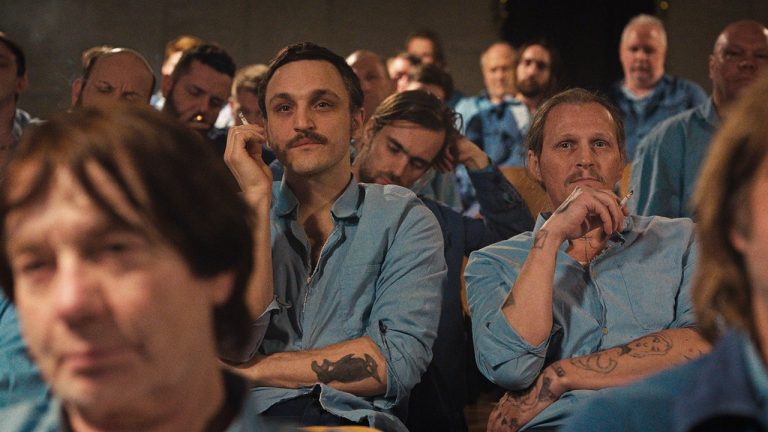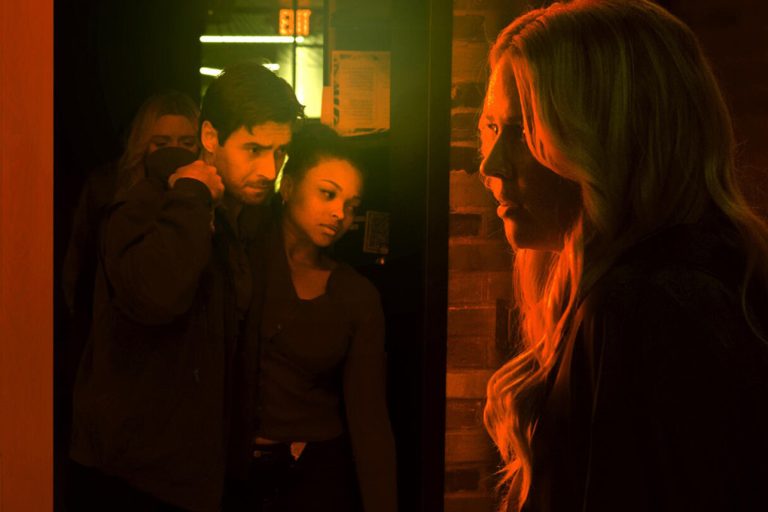Dominic Sangma’s sophomore directorial, Rapture (Rimdogittanga), opens with a glorious, utterly breathtaking single-shot sequence. Tiny, distant specks of light slowly perforate the darkness of the woods as villagers emerge in droves, scouring for a particular breed of cicadas that appear, as we are told, only once every four years. The roving camera gradually picks up pace as it hops among the people with their flaming torches. The emphasis on the eventfulness of these surfacing cicadas goes on to be underlined further, with the village church pastor (Celestine K. Sangma) portending an impending apocalyptic spell of darkness that will soon engulf the Meghalaya village.
One of the boys who had also been seeking the cicadas goes missing, plunging the tight-knit community into uncertainty. The seeds of dread and heightened vigilance are sown. Sightings of mysterious intruders exacerbate the unrest over the inexplicable disappearance. We realize the village community is fiercely cocooned in itself; any untraceable, unknown element is viewed as a potential threat. The incursion of the strangers is correlated with being the prime suspects behind the disappearances. This pushes the community onto the precipice of fear and pervasive distrust, losing all sense of right and wrong as it attempts to shield itself from the horror and perceived antagonism of the Other.
The quick establishment of the contrast between light and dark, the sense of all moral boundaries hopelessly, terrifyingly shattered, heralded by the very opening epigraph, allows for the film to unfold with lush, gracefully measured rhythms, set against DP Tojo Xavier’s painstakingly mounted compositions.
The camerawork shifts between capturing a mundane spectacular and the lithely observational, with constant, unerring attention to the relationship between the landscapes, the characters’ geography, and their everyday rituals, which become increasingly destabilized in the face of the touted ill omens. Xavier prises grandeur out of the night; note the play of light and dark, the slow, calculated, and stunning camera movements, and the gradual descent in a night-time search expedition.
Culling together a spare sound design mainly comprising diegetic, natural elements replete with the hum of insects, Sangma slowly builds a richly lived-in atmosphere, dutifully tracking the daily grind of the residents along with the gradual deviations and disintegrations. It is the protagonist, the ten-year-old Kasan ( Torikhu A. Sangma), whose young uncle Mangkungchi’s disappearance has set the initial spate of disquiet into motion.
The pastor, who acts as the moral and spiritual guardian of the village with everyone hanging onto his words for guidance, is acutely aware of his power to sway the people in whichever direction he’d like. He has keenly gauged the degrees to which the disappearances have ruffled the villagers, harnessing the prevailing psychological unsettlement to whet agendas with purposes hardly noble to any discerning viewer.
The pastor piddles paranoia aplenty, issuing warnings of a forty-day apocalyptic period and manipulating the villagers into making a hefty donation to the church, which would purportedly form the emergency fund. But Sangma wisely refrains from reducing anyone to mere schemers.
The pastor has an ailing wife, and his own vulnerability and unarticulated need to be consoled bubble through in a deeply moving scene, becoming the bedrock of a significant emotional connection and a catalytic relationship in the film. He might seem to be the one wielding the community in his grip. But there is also an immense fragility, the ache of loneliness that subtly permeates our understanding of him.

As circumstances in the village spiral wildly out of control and any moral scruples are promptly brushed under the rug, Sangma plants thematic questions that interrogate the nature and scope of misguided faith, deluded devotion, the devastating corrosiveness that can tear apart the fabric of a community in a desperate, misapprehended bid for self-preservation. In several ways, Kasan becomes a troubled, chafing conscience. As a witness, he is curious and ultimately severely conflicted by the means people around him resort to for covering up shocking bursts of violence.
Kasan is a wanderer, which makes him undesirably privy to scenes and moments that critically reflect the moral ruptures within his village. He sees things he is not supposed to, becoming prey to intimidation. Sangma keeps cleverly performing inversions on the notion of sight in their myriad contexts and implications. Kasan is soft-spoken and gentle, with night blindness that gives yet another opportunity for his friends and peers to bully him. But it is Kasan who turns out to be the most quietly watchful one, his subdued presence a muted but pointed rejoinder to what the adults have foreseen and thereby trying to pre-empt the alleged with violence and exploitation.
Rapture circles the act of seeing, believing stretched to the damaging, dangerous tether while also pulling back to infuse the stray, residual skepticism with precarity, as embodied by Kasan’s father, Nengsal. The film shuttles between perspectives, switching from Kasan to his parents and the pastor. This village has the overarching influence exerted by the pastor and shaman. Their propagated beliefs determine the way of life, using the garb of religion and the supernatural to wheedle out as much as they can from the community. Grace seems deferred and foregone in this place, people careening off the edge and slipping into chaotic aggression in the guise of protectionism.
In the context of the migrant crisis and the borders tightening themselves, these unmistakably sharp political undercurrents accrue cutting timeliness and immediacy. However, the truly captivating, stirring sections of the film are those that riff on the mystical and surreal. Sangma has a spellbinding talent for excavating a spatial essence firmly rooted in tradition and its own epistemic belief system without alienating them, rather bringing it hypnotically close to the every day whilst suffusing a sense of high stakes. Whenever Kasan’s taciturn, old uncle Sobel, happens to finish building his coffins, death strikes. As Rapture touches the realm of a liminal afterlife in a dream state, Sangma’s directorial skills are at their most entrancing.
Rapture could have done with some leanness. The two-hour runtime does feel protracted at times, unnecessarily thickening this tale that has the texture of gossamer. It also suffers a few missteps when it strains to pedal up emotionally charged conflicts, a critical late scene between Kasan’s parents coming off as stiffly contrived, the acting more labored than the low-key register previously established.
Yet, Sangma’s telling remains consistently compelling, expertly interweaving parallel threads and sensitively locating his characters within a specific milieu as they restlessly breach ethics, their souls straying amidst a double-blind of spirituality and traditional prejudice—the fear the film taps and channels invests it with a stab of urgency.







![Naked Singularity [2021] Review: A Needlessly Stretched, Unentertaining Literary Adaptation](https://79468c92.delivery.rocketcdn.me/wp-content/uploads/2021/09/naked-singularity-2-768x432.jpg)
